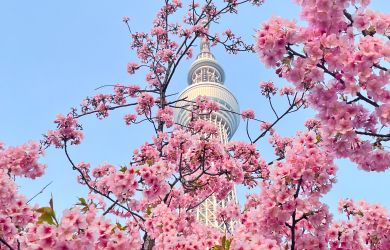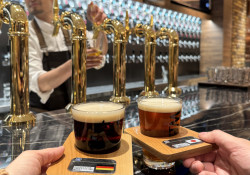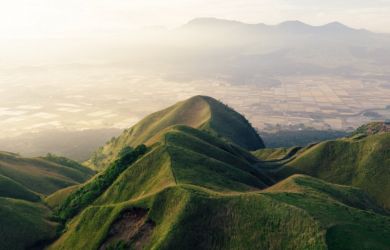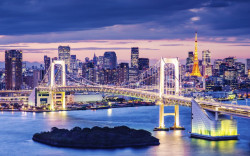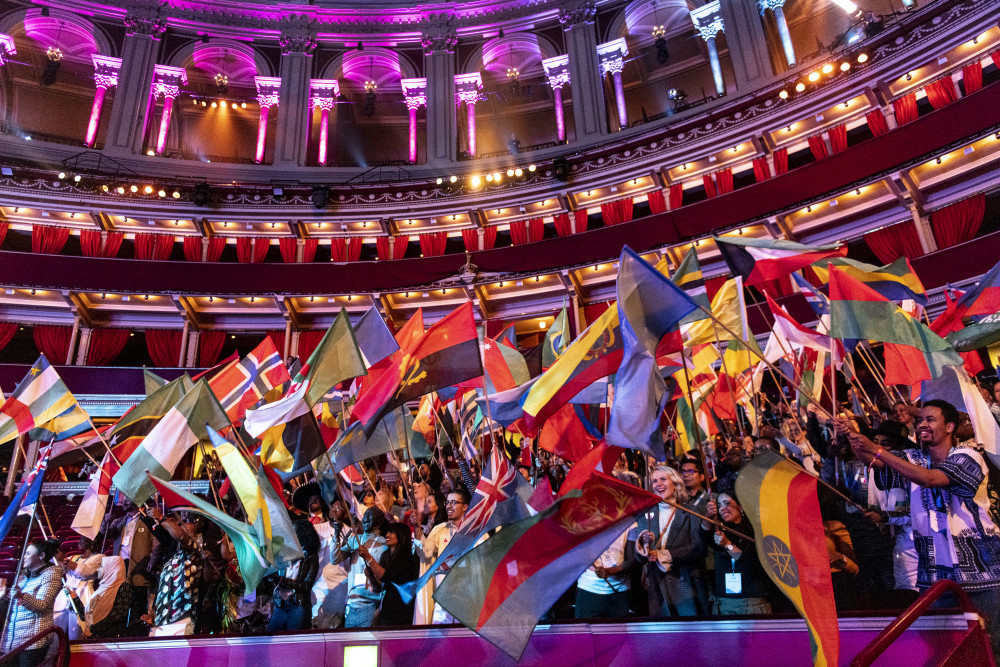
July 23, 2024
Empowering Youth: One Young World Japan
Interview with the visionaries shaping the next generation of leaders
By Sharnie Fenn
In a time when the world faces complex challenges and deep divides, One Young World stands out as a community committed to fostering positive change on a global scale. This dynamic platform brings together young leaders from diverse backgrounds worldwide. It serves to connect, empower and amplify the voices of these emerging leaders, highlighting the impact of collective action, innovative thinking and purposeful leadership in addressing today’s pressing issues.
The community currently boasts more than 17,000 ambassadors from 190+ countries and has previously been joined by prominent guests and speakers such as: Canadian Prime Minister Justin Trudeau, Terry Crews, Emma Watson, Cher and Kofi Annan. The 2022 Impact Report highlights the remarkable achievements of One Young World Ambassadors, whose collective efforts have directly influenced the lives of over 5.77 million individuals, contributing to a cumulative impact of 41.56 million since 2010.
Within the global community, the One Young World Japan (OYWJ) division is a prominent contributor to the international community. Metropolis was honored to have the opportunity to interview the Chairperson, Kimy Okubo, and one of the Executive Directors of OYWJ, Daren Afshar.
Metropolis: What is OYW and what makes the organization so special?
Daren Afshar: OYW is the world’s largest gathering of young leaders in the world. Each year at its global summit, thousands of young, passionate leaders meet to engage one another on a number of projects and/or topics. They get access to some of the world’s most established leaders and mentors and make friendships that will last a lifetime.
M: How does OYWJ support its delegates in making a tangible impact in their communities?
Kimy Okubo: We support our ambassadors by promoting the sharing of experiences and knowledge. We help them realize their potential and create social value through individual consultations, guidance, and coaching. Also, we back their activities through close collaboration with the UK headquarters and regional coordinating ambassadors. Regular ambassador meetings help strengthen collaboration and share ideas. Plus, we use social media and other digital platforms to highlight their achievements and provide new opportunities through introductions to partner companies, organizations and local governments.
DA: This is the only question that matters, isn’t it? The irony of this question’s answer is that Japan is famous for its sense of community. And, yet, time and time again, I meet people in search of one. The OYW community is a valuable and meaningful one because people want to be a part of it, not have to be a part of it. We don’t have a membership fee. We’re not an alumni association seeking dues or donations. We’re a community where everyone supports one another. That is how we make an impact in our communities and social circles.
M: Can you describe some of the most impactful projects that have come out of OYW Japan?
KO: There are so many impactful projects from OYW Japan. For example, the “We Have a Dream” project is a book created by our ambassadors that shares the dreams and visions of young people worldwide. People use it in educational settings to teach the importance of having a global perspective. The business world also values it for leadership programs and employee training. Another example is the Nagasaki Peace-preneur Forum 2023, which aimed to foster peace-building among young people. The forum included speeches, panel discussions and workshops. Its impact was widely reported both domestically and internationally.
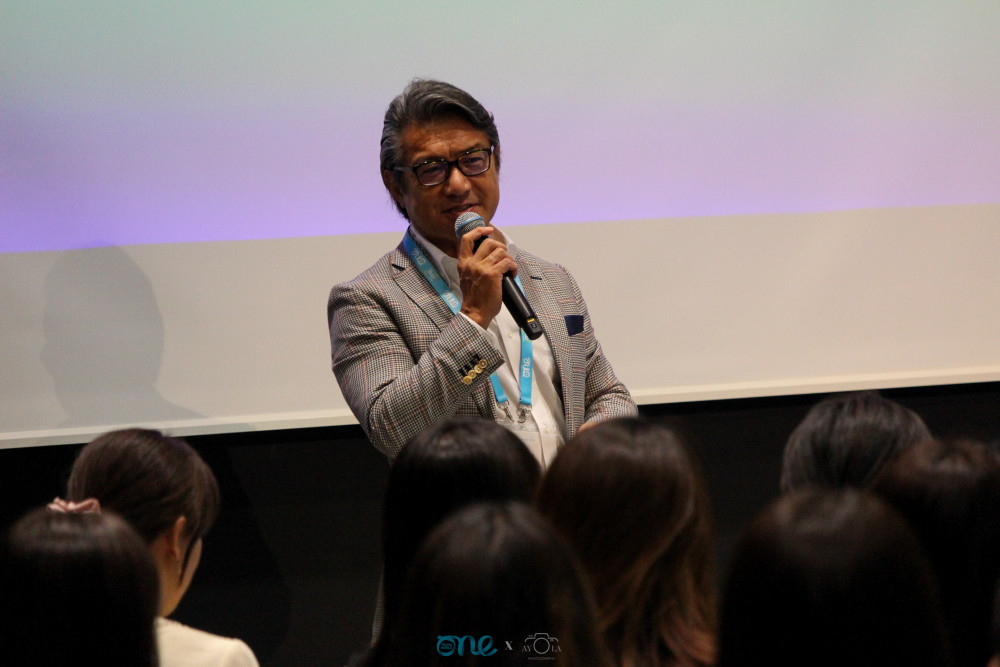
DA: First, let’s be clear, OYWJ is a community of professionals, friends, and mentors. So, we don’t birth projects as a platform. The delegates and ambassadors do that work. Our job is to help amplify and leverage the power of the community. But, our ambassadors are pushing some very important agendas. Robin Lewis is leading the Mymizu startup focused on minimizing plastic waste. Urara Takaseki wants to make feminine products as routinely available as toilet paper. Naomi Iwazawa is working to help education in Japan remove stereotypes and embedded bias. I could go on and on. There are many.
M: How do you ensure diversity and inclusivity within the OYWJ community?
KO: We take several steps to ensure diversity and inclusivity. We have comprehensive participation criteria that assess leadership, social contribution, international perspective, creativity, and problem-solving abilities, regardless of gender, nationality, religion, cultural background or economic status. Also, we provide scholarships and financial support to outstanding candidates who face financial barriers. Our program content covers a wide range of themes and invites speakers and mentors from diverse backgrounds. We partner with local communities and NGOs to reflect the voices of youth and minorities from rural areas. Finally, we regularly collect feedback to continuously improve our programs and strategies.
M: What are your expectations for the 2024 delegates attending the Montreal Summit?
KO: For the 2024 Montreal Summit, we expect our delegates to demonstrate leadership, actively engage in discussions and participate in networking. We want them to gain a global perspective by interacting with others and developing empathy. So we’re trying to encourage them to develop concrete action plans based on what they learn at the summit and contribute to sustainable development goals. We support them in leveraging OYW’s extensive network to advance their projects and build new partnerships. Also, we expect them to represent Japan’s youth by sharing their culture and values, as well as Japan’s social issues and initiatives, with other participants.
Shibuya Caucus: A Meeting of Minds
In early June, I attended the One Young World Japan Shibuya Caucus, an event that brought together current potential delegates and alumni from previous years. The event featured numerous inspirational guest speakers who addressed topics such as women in politics and business, and diversity in the workplace. The eldest speaker was the remarkable Yoko Ohara, an 84-year-old trailblazer in the Japanese fashion industry. Ohara ended her speech by encouraging listeners to chase their dreams, step out of their comfort zones and always stand up for what they believe in. “Your life is a novel and you are the author. Write your own story,” Ohara encouraged to which she received a deafening round of applause.
I had the pleasure of listening to a speech by Naomi Iwazawa, an OYW alumna, doctoral student at the University of Tokyo and CEO of CULMONY, who delivered a powerful message on the importance of diversity. With 3.2 million foreign nationals now residing in Japan, the need for dialogue on this topic has never been more urgent.
Metropolis had the chance to talk to Naomi and delve deeper into her journey and motivations.
M: Why did you decide to join One Young World?
Naomi Iwazawa: I wanted to work on promoting diversity and inclusion in Japan because growing up, I struggled to find role models or a community I was inspired by.
I realized how limited a single person’s action can be in influencing the world. I joined because I thought OYW would help me widen my perspectives and because we need a community that can help our actions to spread, we need empowering and inspiring friends, and we need buddies to support each other.
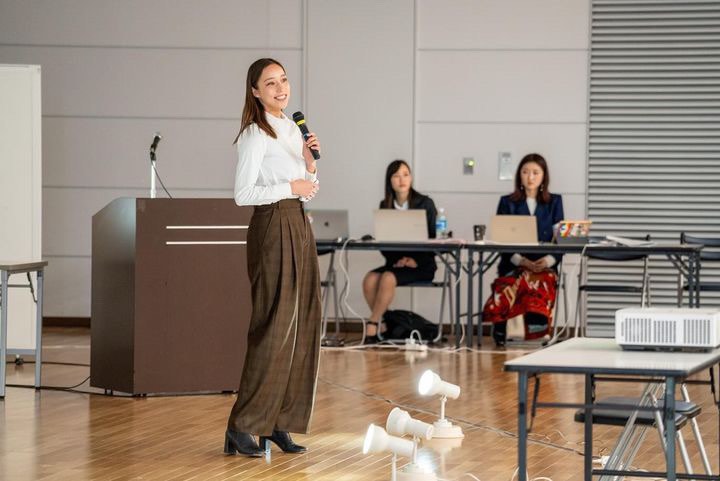
M: What is CULMONY and how did it evolve after joining OYW?
NI: Culmony is a company that collaborates with schools, companies, and local governments in Japan to promote diversity, equality, and inclusion. Initially, it started as a small school for children, but after joining OYW, it expanded its reach to a broader audience.
Through OYW, I realized that diversity issues vary greatly among countries. Delegates from around the world shared their concerns, and I understood that Japan has a unique approach to welcoming people from different cultures. The biggest challenge is unconscious bias and the avoidance of uncertainty. This insight led me to want to research how education can address these attitudes.
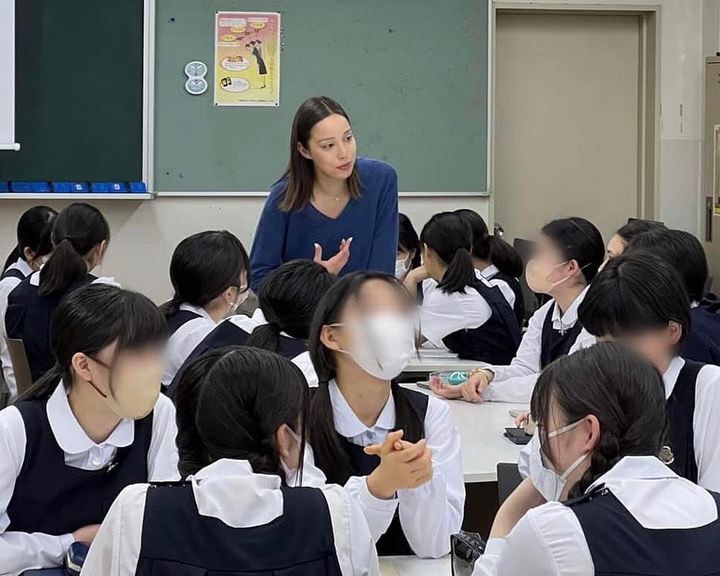
M: What advice would you give to the current delegates preparing for the 2024 Summit? Or people wanting to join OYW in the future?
NI: Please enjoy the atmosphere and meeting new people. Regardless if they work in a different field or have different passions and values from you, the connections and friendships you make will surely be very fascinating and powerful.
Everybody is a participant, and everybody has the ability to empower somebody. What you see and what you know may be valuable information to someone. So, please enjoy sharing your perspectives and experiences, and talking about what you are interested in!
The 2024 Montreal Summit
Every year, OYW Japan receives over 50,000 applications from aspiring young leaders and their annual delegation exceeds 100 people between the ages of 18 and 32. The selection process is highly competitive, focusing on candidates who demonstrate strong leadership qualities, a global perspective, innovative ideas and a strong commitment to social change. Applicants are required to submit a one to three minute YouTube video presentation and those who pass will then be required to undergo a final interview.
“For our few scholarships, prospective delegates need to show us what action they have in mind or have already taken. Also, we ask them to tell us which of the UN SDGs they are most passionate about and why. We are not interested in dreamers. We want future leaders who are taking action today, however large or small.” Afshar commented.
This year, the annual One Young World Summit is taking place in Montreal, Canada, from September 18th to 21st. For young leaders, the Summit is the landmark event of the year and a chance for delegates to participate in four days of speeches, workshops and networking.
My Own Experiences
In 2022, I had the honor of participating in the Manchester Summit as a delegate. Personally, I had been heavily inspired by Emma Watson’s speech at the 2016 Summit in Ottawa, Canada, and had been dreaming of attending a Summit since. I vividly remember being glued to my computer screen and thinking … “This is what I want to do! This is what I can do to help!”
At 18 years old, in my first year of university, openly identifying as a feminist was daunting. It sparked contentious debates in classrooms and caused (mostly) female students to be shunned in discussions. In one memorable instance during Property Law class, our lecturer highlighted the stark gender disparity in land ownership, revealing that women own less than 20% of the world’s land. The discussion delved into the deep-seated injustices behind this statistic: historical legal prohibitions against women owning property, financial disenfranchisement stemming from systemic barring from entering the workforce and a multitude of social barriers designed to suppress women’s economic independence. Despite this damning evidence of pervasive inequality, a male student had the audacity to remark, “Women just don’t work hard enough,” blatantly ignoring the oppressive structures that have long denied women equal opportunities.
A Ripple of Hope
So, when Emma Watson quoted former New York Senator Bobby Kennedy in her speech —“Each time a man or woman stands up for an ideal or strikes out against injustice, they send forth a tiny ripple of hope. Crossing each other from a million different centers of energy, those ripples build a current that can sweep down the mightiest wall of oppression and resistance.” – instantly, I wanted to be a part of it.
When I walked into the Manchester Summit venue, I immediately felt the ripple. Hundreds of activists, leaders, students and entrepreneurs, from countries I’d never even heard of before, talking unabashedly and passionately about topics that, in my experience, had always been dodged, shunned or skirted around. By the end of the three days, that ripple grew into a current and I felt a deep sense of hope, motivation and community.
It’s heartening to witness so many individuals committed to making our world a better place. Their energy and determination are not just commendable; they are transformative. As delegates prepare to return from Montreal, they carry with them the resolve to amplify this wave of change. Together, we can drive forward the momentum needed to dismantle the waves of oppression and create lasting change.

